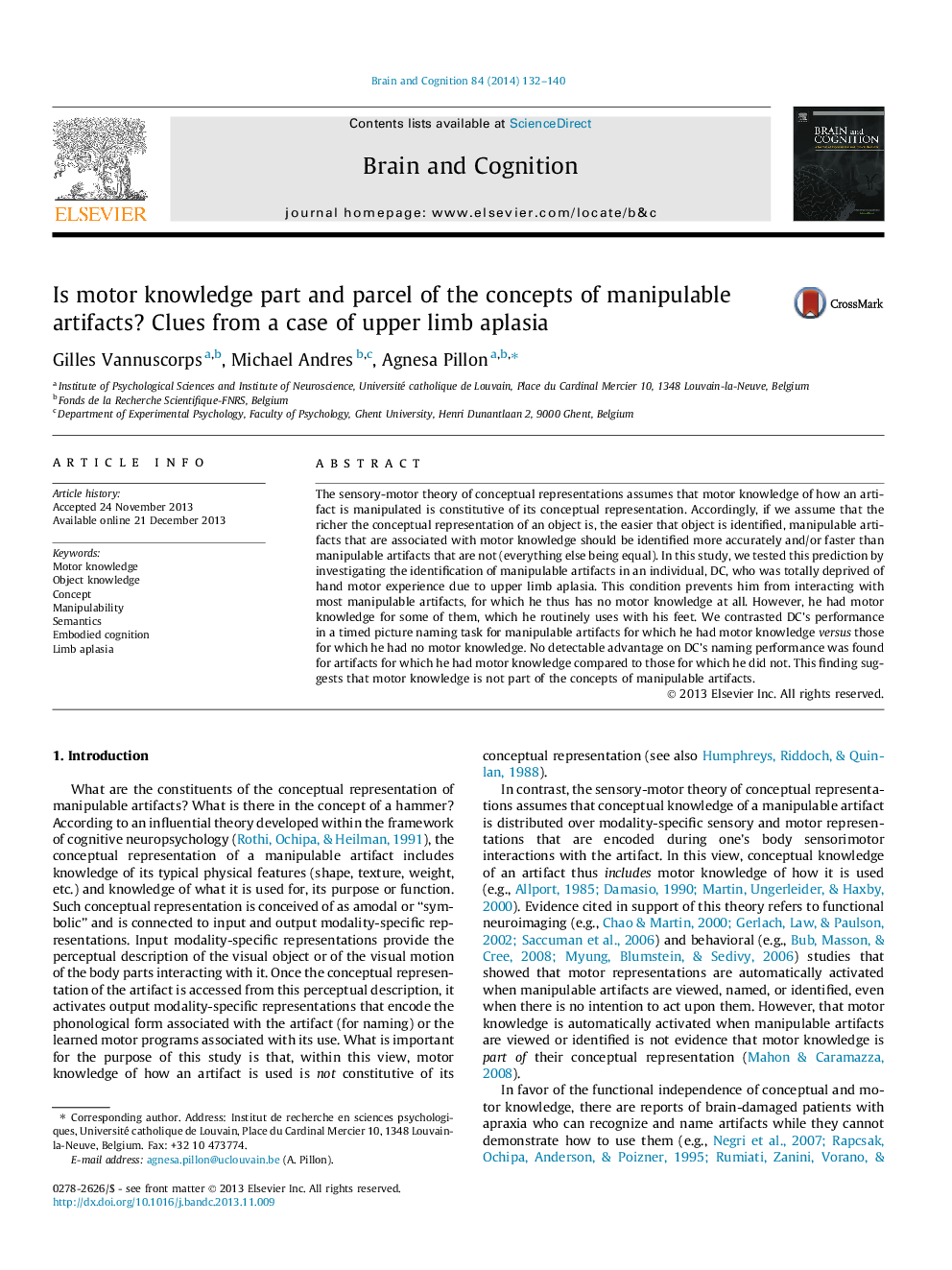| کد مقاله | کد نشریه | سال انتشار | مقاله انگلیسی | نسخه تمام متن |
|---|---|---|---|---|
| 10455572 | 921187 | 2014 | 9 صفحه PDF | دانلود رایگان |
عنوان انگلیسی مقاله ISI
Is motor knowledge part and parcel of the concepts of manipulable artifacts? Clues from a case of upper limb aplasia
ترجمه فارسی عنوان
دانش موتور، بخشی از مفاهیم مصنوعات دستکاری است؟ سرنخ ها از یک مورد آپلاسیای اندام فوقانی
دانلود مقاله + سفارش ترجمه
دانلود مقاله ISI انگلیسی
رایگان برای ایرانیان
کلمات کلیدی
موضوعات مرتبط
علوم زیستی و بیوفناوری
علم عصب شناسی
علوم اعصاب شناختی
چکیده انگلیسی
The sensory-motor theory of conceptual representations assumes that motor knowledge of how an artifact is manipulated is constitutive of its conceptual representation. Accordingly, if we assume that the richer the conceptual representation of an object is, the easier that object is identified, manipulable artifacts that are associated with motor knowledge should be identified more accurately and/or faster than manipulable artifacts that are not (everything else being equal). In this study, we tested this prediction by investigating the identification of manipulable artifacts in an individual, DC, who was totally deprived of hand motor experience due to upper limb aplasia. This condition prevents him from interacting with most manipulable artifacts, for which he thus has no motor knowledge at all. However, he had motor knowledge for some of them, which he routinely uses with his feet. We contrasted DC's performance in a timed picture naming task for manipulable artifacts for which he had motor knowledge versus those for which he had no motor knowledge. No detectable advantage on DC's naming performance was found for artifacts for which he had motor knowledge compared to those for which he did not. This finding suggests that motor knowledge is not part of the concepts of manipulable artifacts.
ناشر
Database: Elsevier - ScienceDirect (ساینس دایرکت)
Journal: Brain and Cognition - Volume 84, Issue 1, February 2014, Pages 132-140
Journal: Brain and Cognition - Volume 84, Issue 1, February 2014, Pages 132-140
نویسندگان
Gilles Vannuscorps, Michael Andres, Agnesa Pillon,
